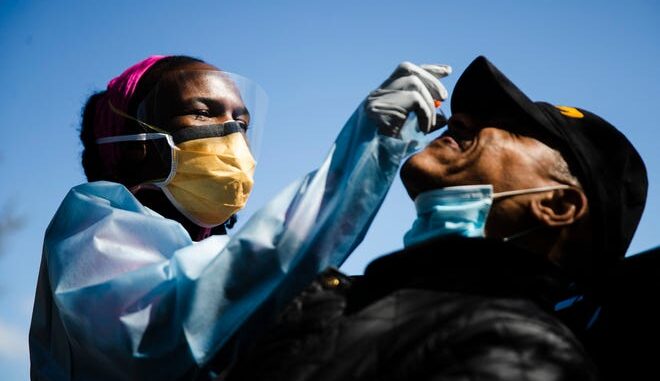
Dr. Augustine M.K. Choi / Opinion Contributor – Recent protests combating racial injustice are a wake-up call to medical schools. We need more Black doctors to reduce racial gaps in medical outcomes.
As many researchers have documented, being Black in the United States can be hazardous to one’s health.
Black Americans are at greater risk for serious and often deadly diseases such as diabetes, asthma, stroke and high blood pressure, according to the Centers for Disease Control and Prevention. And that tragic trajectory continues through the pandemic in which Blacks are two to three times more likely than whites to die from COVID-19.
A key strategy for improving these outcomes is building the pipeline of Black doctors. Studies show that there is greater trust between doctors and patients when they are the same race or ethnicity, leading to increased engagement on both sides and better compliance with health care recommendations. The National Academy of Medicine, the Association of American Medical Colleges and other organizations have called for greater diversity in the health care workforce to address disparities in care.
Five steps to more Black doctors
Here are steps that medical schools can take right now to increase the pipeline of Black doctors and improve medical outcomes for an underserved community:
2. Substantial financial support. Once admitted to medical school, Black students may experience a greater financial burden due to structural inequalities. And at an average annual cost of approximately $90,000 and average student debt upon graduation of nearly $165,828, medical school can prove a massive burden for students. Medical schools are beginning to recognize the problem with several now providing debt-free financial aid for all medical students who qualify for financial aid. The belief is that this level of support can help attract qualified Black medical students.
3. Inclusive academic programming. As future physicians, all medical students must have the knowledge and skills to produce optimal health outcomes for all patients and to address disparities. Some medical schools are modifying their curricula by teaching students about the unique issues facing Black Americans and better preparing them to interact with patients in culturally sensitive ways. They are incorporating information on how health conditions, such as Lyme disease, appear on Black skin and ensuring that diverse bodies are represented across the curriculum. In a related example, Weill Cornell Medicine is modifying its curriculum by introducing additional educational content related to racism, social injustice and social determinants of health.
Making medicine work for Black America:How Black students will answer the call for reform
4. Increase in Black faculty. The investment in medical students should be part of a larger strategy to create a long-term home for Black faculty physicians, who serve as important role models for all students. Medical schools should work with Black students to transition them into residency positions at affiliated hospitals when possible, then bring them back as medical school faculty after the conclusion of training. Key to this approach is ensuring that students can succeed academically and advance in their careers with equal opportunities to access academic support services, career development programs and mentorship.
Black health matters: COVID has shown that improving care must be a national priority.
The recent protests combating racial injustice are a wake-up call to medical schools. They remind us that, while it will take time to reduce gaps in medical outcomes between populations, we must redouble our efforts. Addressing the shortage of Black doctors is an essential first step.
Dr. Augustine M.K. Choi is dean of Weill Cornell Medicine and provost for medical affairs of Cornell University. Follow him on Twitter: @AugustineMKChoi
For more info visit: https://www.usatoday.com/story/opinion/2020/07/25/reverse-black-doctor-shortage-close-racial-health-care-gap-column/5473447002/

Be the first to comment